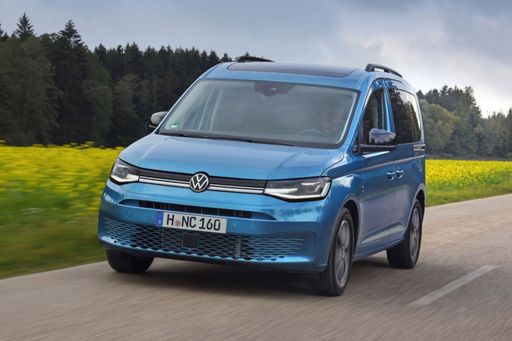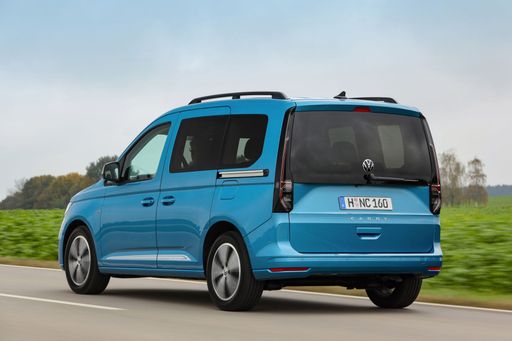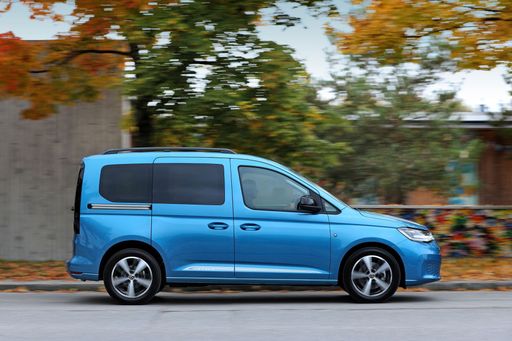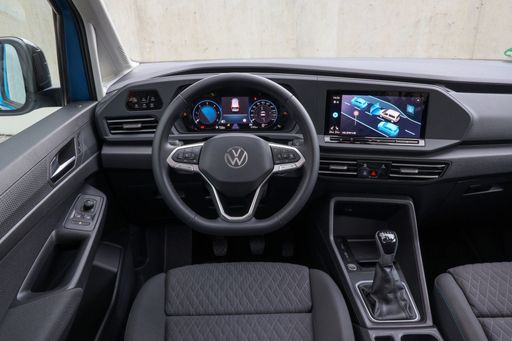Hyundai Tucson vs VW Caddy – Which one offers the better deal?
Compare performance, boot capacity, efficiency and price at a glance.
Find out which car is the better choice for you – Hyundai Tucson or VW Caddy?
Costs and Efficiency:
Looking at overall running costs, both models reveal some interesting differences in everyday economy.
VW Caddy has a a bit advantage in terms of price – it starts at 27800 £, while the Hyundai Tucson costs 30600 £. That’s a price difference of around 2875 £.
Fuel consumption also shows a difference: VW Caddy manages with 0.50 L and is therefore decisively more efficient than the Hyundai Tucson with 1 L. The difference is about 0.50 L per 100 km.
As for range, the VW Caddy performs clearly better – achieving up to 121 km, about 51 km more than the Hyundai Tucson.
Engine and Performance:
Power, torque and acceleration are the classic benchmarks for car enthusiasts – and here, some clear differences start to show.
When it comes to engine power, the Hyundai Tucson has a decisively edge – offering 252 HP compared to 150 HP. That’s roughly 102 HP more horsepower.
In acceleration from 0 to 100 km/h, the Hyundai Tucson is decisively quicker – completing the sprint in 7.90 s, while the VW Caddy takes 11.40 s. That’s about 3.50 s faster.
In terms of top speed, the Hyundai Tucson performs hardly perceptible better – reaching 194 km/h, while the VW Caddy tops out at 186 km/h. The difference is around 8 km/h.
There’s also a difference in torque: Hyundai Tucson pulls somewhat stronger with 367 Nm compared to 320 Nm. That’s about 47 Nm difference.
Space and Everyday Use:
Beyond pure performance, interior space and usability matter most in daily life. This is where you see which car is more practical and versatile.
Seats: VW Caddy offers noticeable more seating capacity – 7 vs 5.
In curb weight, Hyundai Tucson is hardly perceptible lighter – 1520 kg compared to 1575 kg. The difference is around 55 kg.
In maximum load capacity, the VW Caddy performs clearly better – up to 3700 L, which is about 1901 L more than the Hyundai Tucson.
When it comes to payload, VW Caddy evident takes the win – 710 kg compared to 545 kg. That’s a difference of about 165 kg.
Who wins the race?
The VW Caddy proves to be dominates this comparison and therefore becomes our DriveDuel Champion!
VW Caddy is the better all-rounder in this comparison.
 @ Volkswagen AG / VW Media
@ Volkswagen AG / VW Media
VW Caddy
Hyundai Tucson
Hyundai Tucson marries bold, sculpted looks with a clever, roomy cabin that feels smarter than its price tag suggests. It's composed on the road, easy to live with day-to-day, and a sensible choice for buyers who want SUV style without the showroom theatrics.
details @ Hyundai Motor Company
@ Hyundai Motor Company
 @ Hyundai Motor Company
@ Hyundai Motor Company
 @ Hyundai Motor Company
@ Hyundai Motor Company
 @ Hyundai Motor Company
@ Hyundai Motor Company
 @ Hyundai Motor Company
@ Hyundai Motor Company
VW Caddy
The VW Nutzfahrzeuge Caddy Hochdach-Kombi is a versatile choice for those seeking extra space and practicality in their everyday vehicle. With its functional high roof and adaptable interior, it easily accommodates both passengers and cargo. The Caddy also stands out with its modern design and features aimed at providing comfort and convenience on the road.
details @ Volkswagen AG / VW Media
@ Volkswagen AG / VW Media
 @ Volkswagen AG / VW Media
@ Volkswagen AG / VW Media
 @ Volkswagen AG / VW Media
@ Volkswagen AG / VW Media
 @ Volkswagen AG / VW Media
@ Volkswagen AG / VW Media
 @ Hyundai Motor Company
@ Hyundai Motor Company
|
 @ Volkswagen AG / VW Media
@ Volkswagen AG / VW Media
|
|
|
|
Costs and Consumption |
|
|---|---|
|
Price
30600 - 46300 £
|
Price
27800 - 45900 £
|
|
Consumption L/100km
1 - 6.9 L
|
Consumption L/100km
0.5 - 6.9 L
|
|
Consumption kWh/100km
-
|
Consumption kWh/100km
-
|
|
Electric Range
64 - 70 km
|
Electric Range
116 - 121 km
|
|
Battery Capacity
-
|
Battery Capacity
19.70 kWh
|
|
co2
22 - 156 g/km
|
co2
10 - 165 g/km
|
|
Fuel tank capacity
42 - 54 L
|
Fuel tank capacity
50 L
|
Dimensions and Body |
|
|---|---|
|
Body Type
SUV
|
Body Type
High Roof Estate
|
|
Seats
5
|
Seats
5 - 7
|
|
Doors
5
|
Doors
5
|
|
Curb weight
1520 - 1889 kg
|
Curb weight
1575 - 1998 kg
|
|
Trunk capacity
546 - 620 L
|
Trunk capacity
-
|
|
Length
4510 - 4520 mm
|
Length
4500 - 4853 mm
|
|
Width
1865 mm
|
Width
1855 mm
|
|
Height
1650 mm
|
Height
1819 - 1860 mm
|
|
Max trunk capacity
1721 - 1799 L
|
Max trunk capacity
2556 - 3700 L
|
|
Payload
525 - 545 kg
|
Payload
501 - 710 kg
|
Engine and Performance |
|
|---|---|
|
Engine Type
Diesel MHEV, Petrol MHEV, Petrol, Full Hybrid, Plugin Hybrid
|
Engine Type
Petrol, Diesel, Plugin Hybrid
|
|
Transmission
Automatic, Manuel
|
Transmission
Manuel, Automatic
|
|
Transmission Detail
Dual-Clutch Automatic, Manual Gearbox, Automatic Gearbox
|
Transmission Detail
Manual Gearbox, Dual-Clutch Automatic
|
|
Drive Type
Front-Wheel Drive, All-Wheel Drive
|
Drive Type
Front-Wheel Drive, All-Wheel Drive
|
|
Power HP
136 - 252 HP
|
Power HP
102 - 150 HP
|
|
Acceleration 0-100km/h
7.9 - 11.6 s
|
Acceleration 0-100km/h
11.4 - 14 s
|
|
Max Speed
180 - 194 km/h
|
Max Speed
173 - 186 km/h
|
|
Torque
265 - 367 Nm
|
Torque
220 - 320 Nm
|
|
Number of Cylinders
4
|
Number of Cylinders
4
|
|
Power kW
100 - 185 kW
|
Power kW
75 - 110 kW
|
|
Engine capacity
1598 cm3
|
Engine capacity
1498 - 1968 cm3
|
General |
|
|---|---|
|
Model Year
2024
|
Model Year
2024
|
|
CO2 Efficiency Class
E, F, D, B
|
CO2 Efficiency Class
E, F, B
|
|
Brand
Hyundai
|
Brand
VW
|
What drive types are available for the Hyundai Tucson?
Available configurations include Front-Wheel Drive or All-Wheel Drive.
The prices and data displayed are estimates based on German list prices and may vary by country. This information is not legally binding.
